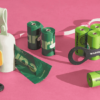Essential Dog Health Tips for a Happy, Healthy Life
- by
- Fawaz Naveed
- -
- December 26, 2024
- -
Keeping your dog healthy and happy is one of the most important responsibilities of being a dog parent. Whether you’re a first-time owner or have years of experience, understanding basic health care can make a big difference in your dog’s life. This guide covers feeding, exercise, grooming, and other essential healthcare tips for your furry friend.
Feeding Your Dog
Feeding your dog the right food and at the right times is key to their overall health.
How Often Should You Feed Your Dog?
 Puppies (8–12 weeks old): Feed 4 small meals daily. Puppies have small stomachs and need frequent meals to grow strong.
Puppies (8–12 weeks old): Feed 4 small meals daily. Puppies have small stomachs and need frequent meals to grow strong. Puppies (3–6 months old): Reduce to 3 meals a day as their growth slows down.
Puppies (3–6 months old): Reduce to 3 meals a day as their growth slows down. Puppies (6 months–1 year): Feed 2 meals a day to match their growing size and energy needs.
Puppies (6 months–1 year): Feed 2 meals a day to match their growing size and energy needs. Adult Dogs (1 year and older): Most adult dogs thrive on 1 meal a day. However, for large breeds or dogs prone to bloat, splitting meals into 2 smaller portions is safer and better for digestion.
Adult Dogs (1 year and older): Most adult dogs thrive on 1 meal a day. However, for large breeds or dogs prone to bloat, splitting meals into 2 smaller portions is safer and better for digestion.
What Should You Feed Your Dog?
 Choose high-quality dog food designed for their age, size, and breed. Puppy foods are specifically formulated for young dogs, and large-breed puppy foods cater to their unique growth needs.
Choose high-quality dog food designed for their age, size, and breed. Puppy foods are specifically formulated for young dogs, and large-breed puppy foods cater to their unique growth needs. Occasionally, you can mix their dry food with water, broth, or canned food to add variety.
Occasionally, you can mix their dry food with water, broth, or canned food to add variety. Treats like cooked eggs, cottage cheese, or small amounts of fruits and vegetables can be added but should make up no more than 10% of their daily intake.
Treats like cooked eggs, cottage cheese, or small amounts of fruits and vegetables can be added but should make up no more than 10% of their daily intake.
Foods to Avoid
 Limit “people’s food” as it can cause nutritional imbalances, obesity, and even picky eating habits.
Limit “people’s food” as it can cause nutritional imbalances, obesity, and even picky eating habits. Always provide fresh, clean water and wash food and water bowls daily to maintain hygiene.
Always provide fresh, clean water and wash food and water bowls daily to maintain hygiene.
Exercise: Keep Your Dog Active
Exercise is crucial for your dog’s physical and mental health.
Why Does Your Dog Need Exercise?
 Burn Calories: Helps maintain a healthy weight.
Burn Calories: Helps maintain a healthy weight. Prevent Boredom: Reduces destructive behaviors like chewing or digging.
Prevent Boredom: Reduces destructive behaviors like chewing or digging. Stimulate Their Mind: Keeps your dog mentally sharp and happy.
Stimulate Their Mind: Keeps your dog mentally sharp and happy. Strengthen Muscles and Joints: Promotes overall fitness and mobility.
Strengthen Muscles and Joints: Promotes overall fitness and mobility.
How to Exercise Your Dog
 Take daily walks or runs tailored to your dog’s energy level and breed.
Take daily walks or runs tailored to your dog’s energy level and breed. Play interactive games like fetch, tug-of-war, or chase.
Play interactive games like fetch, tug-of-war, or chase. Engage in activities that satisfy their instincts, such as retrieving, herding, or digging (in designated areas).
Engage in activities that satisfy their instincts, such as retrieving, herding, or digging (in designated areas). Adjust the intensity of exercise based on your dog’s age, breed, and health.
Adjust the intensity of exercise based on your dog’s age, breed, and health.
Grooming: Keeping Your Dog Clean
Grooming is more than just keeping your dog looking good—it’s an important part of their health.
Basics Grooming
 Brushing: Regular brushing removes loose fur, prevents matting, and reduces shedding.
Brushing: Regular brushing removes loose fur, prevents matting, and reduces shedding. Bathing: Most dogs only need baths a few times a year unless they get very dirty. Use dog-safe shampoo and rinse thoroughly to avoid residue.
Bathing: Most dogs only need baths a few times a year unless they get very dirty. Use dog-safe shampoo and rinse thoroughly to avoid residue. Fleas and Ticks: Check your dog for fleas and ticks daily, especially during warm weather.
Fleas and Ticks: Check your dog for fleas and ticks daily, especially during warm weather.
Tips for Bathing Your Dog
 Brush your dog before bathing to remove tangles or mats.
Brush your dog before bathing to remove tangles or mats. Use lukewarm water and a gentle dog shampoo.
Use lukewarm water and a gentle dog shampoo. Rinse thoroughly to ensure no soap is left in the fur, as it can attract dirt.
Rinse thoroughly to ensure no soap is left in the fur, as it can attract dirt.
Vaccinations: Protecting Your Dog from Illness
Vaccinations are an essential part of your dog’s preventive care.
Why Vaccinate Your Dog?
Vaccines protect your dog from harmful diseases such as rabies, distemper, and parvovirus. They also help prevent the spread of illnesses to other animals.
When to Vaccinate?
 Puppies should begin their vaccination schedule early, typically starting at 6–8 weeks of age.
Puppies should begin their vaccination schedule early, typically starting at 6–8 weeks of age. Adult dogs may need booster shots based on their age and lifestyle.
Adult dogs may need booster shots based on their age and lifestyle.
Speak with your veterinarian to determine the right vaccination schedule for your dog.
Preventing Fleas and Ticks
Fleas and ticks can make your dog uncomfortable and carry diseases.
How to Protect Your Dog
 Inspect your dog daily, especially during warm months or after outdoor activities.
Inspect your dog daily, especially during warm months or after outdoor activities. Use a flea comb to check for fleas and remove them.
Use a flea comb to check for fleas and remove them. Consult your veterinarian for the best flea and tick prevention products, including collars, topical treatments, or oral medications.
Consult your veterinarian for the best flea and tick prevention products, including collars, topical treatments, or oral medications.
Medicines and Poison Prevention
Keeping your dog safe from harmful substances is a vital part of health care.
Safe Medication Practices
 Prescribed Only: Never give your dog medication that hasn’t been prescribed by a vet.
Prescribed Only: Never give your dog medication that hasn’t been prescribed by a vet. Poison Prevention: Common household items like chocolate, certain plants, and cleaning products can be toxic to dogs.
Poison Prevention: Common household items like chocolate, certain plants, and cleaning products can be toxic to dogs.
If your dog ingests something harmful, call your vet immediately or contact the ASPCA Animal Poison Control Center at (888) 426-4435 for emergency help.
Spaying and Neutering
Spaying and neutering not only help control the pet population but also offer health benefits.
Benefits of Spaying and Neutering
 Reduces the risk of certain cancers and infections.
Reduces the risk of certain cancers and infections. Helps prevent unwanted behaviors like marking and roaming.
Helps prevent unwanted behaviors like marking and roaming.
It’s recommended to spay or neuter your dog by six months of age.
Monitoring Your Dog’s Health
Keeping an eye on your dog’s behavior and physical condition helps you spot problems early.
Signs to Watch For:
 Changes in appetite or weight.
Changes in appetite or weight. Unusual lethargy or lack of interest in activities.
Unusual lethargy or lack of interest in activities. Skin issues, such as excessive scratching or redness.
Skin issues, such as excessive scratching or redness.
Regular check-ups with your vet are essential for maintaining your dog’s overall health.
Conclusion
Caring for your dog’s health is about more than just feeding and grooming—it’s about creating a safe, happy, and loving environment where they can thrive. By providing a balanced diet, regular exercise, proper grooming, and preventive care, you’ll give your dog the best chance at a long and healthy life.
Start implementing these tips today and enjoy the unconditional love and companionship that only a healthy dog can bring.
CATEGORIES
- Accessories (2)
- Dog Grooming (1)
- Pet (1)
- Pet Care (5)
- Pet Food (1)
- Pet Health (2)



